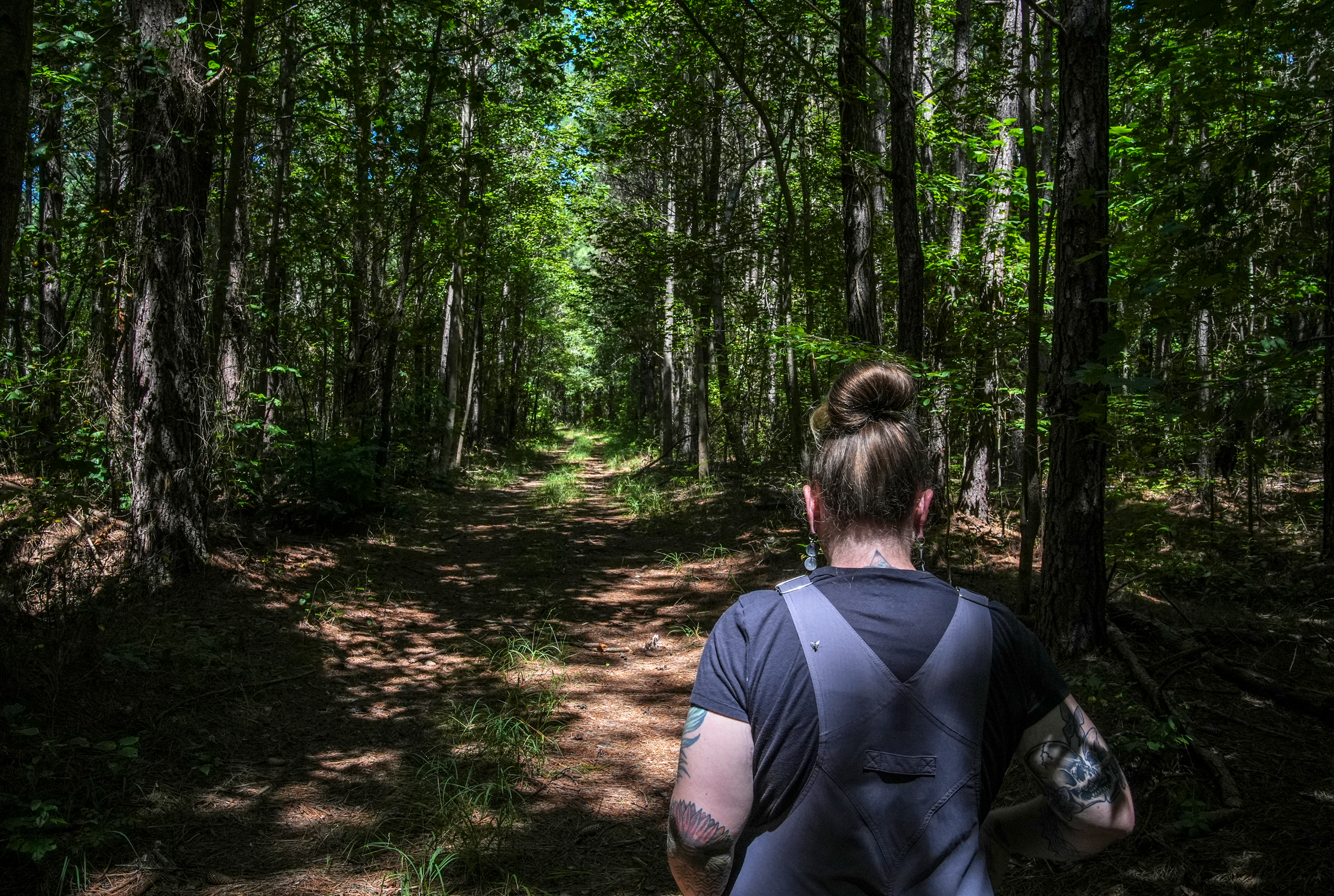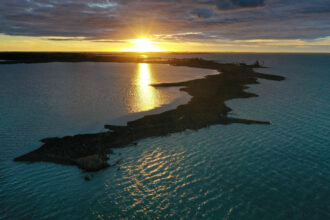The Chesapeake Bay Program declined to grant tribal nations full membership and voting rights in its governing body at a meeting Friday, its principal staff committee instead saying officials could explore advisory roles and potential partnerships with tribes.
That decision came in response to a formal request by the Indigenous Conservation Council (ICC) on behalf of seven federally recognized tribal nations in Virginia to become signatories to the Chesapeake Bay Watershed Agreement, joining six states, Washington, D.C., the Chesapeake Bay Commission and the U.S. Environmental Protection Agency. That status would give the tribes a direct role in efforts to restore one of the world’s most significant estuaries.
Committee members ultimately agreed to send a letter to the ICC stating that the program’s executive council “has not been expressly directed to discuss changes to or expansion of Executive Council membership,” and that the existing mandate—to revise, not rewrite the 2014 agreement—places full membership “outside of our current charge.”
The letter, however, said the tribes’ proposal would be taken into account in future discussions about partnership structure and processes. It added that discussions could potentially include how best to ensure tribal representation, how an Indigenous guardianship program might be integrated and whether an advisory committee or other structure could help integrate these priorities across the program.
The program did not provide additional comments about the tribes’ request for membership.
The ICC’s request followed a resolution passed on Jan. 15, “A Declaration of Tribal Nations as Sovereign Governments Committed to the Protection and Restoration of Ancestral Lands and Waters through the Chesapeake Bay Program Partnership.” Its signatories include leaders of the Chickahominy Indian Tribe, Chickahominy Indian Tribe – Eastern Division, Monacan Indian Nation, Nansemond Indian Nation, Pamunkey Indian Tribe, Rappahannock Tribe and Upper Mattaponi Tribe.
The declaration called for full signatory status for tribal nations through the ICC, creating and funding an Indigenous guardianship program and formally integrating Indigenous knowledge into the Bay program’s science and policy frameworks. The ICC presented the resolution through a series of public comments and direct engagement with bay program officials.
Chief Anne Richardson, chair of the ICC and chief of the Rappahannock Tribe, said the outcome of Friday’s meeting was disappointing.
“All the federally recognized tribes are already doing this amazing work in conservation in the bay’s watersheds,” she said. “It really shows that the program is behind the ball in recognizing tribal sovereignty and Indigenous knowledge.”
Richardson rejected the rationale offered by bay program officials that a new directive from the executive council would be required to grant tribal nations signatory status. “The bureaucratic rhetoric that we’re getting is really just a smokescreen to keep the tribes out,” she said. “There’s no reason not to do it, except they don’t want to share the money.”
The program receives funding through the EPA primarily and distributes funds among its implementing partners in the form of grants and agreements.
Melissa Ann Ehrenreich, executive director of the ICC, called the committee’s action “a polite sidestep.” While the letter expressed support for the tribal declaration, she said, it ultimately declined the core request for full inclusion.
“We think there was more latitude that could have been taken,” she said. “We’re not asking as a nice-to-have. We’re asking and demonstrating all the wonderful benefits that come from including tribal nations at the table.”
Ehrenreich emphasized that while the ICC remains excluded from the program’s governing structures, it has been invited to present again at the August meeting of the principal staff committee and is currently on the agenda for the December 2025 executive council meeting, to be chaired by Maryland Gov. Wes Moore.
She said the executive council could still issue a new directive, or “charge,” authorizing the inclusion of tribal nations as full signatories. In the months ahead, the ICC plans to mobilize public support and pressure to help drive that outcome.
The Chesapeake Bay Program lags behind other major conservation programs that already involve Indigenous knowledge and participation.
In regions such as the Great Lakes, Puget Sound and Alaska, tribal nations already serve as co-managers or signatories in regional environmental governance structures. In many of those cases, Indigenous-led efforts have resulted in successful outcomes by integrating traditional ecological knowledge with science.
In comparison, the Chesapeake Bay Program currently includes no tribal nations among its signatories, even though the seven federally recognized tribes in Virginia are already involved in restoration and conservation across their ancestral lands.
Earlier this month, the Chesapeake Bay was designated a global “Hope Spot” by the ocean research and advocacy nonprofit Mission Blue, recognizing it as a region of ecological and cultural importance. The organization cited the leadership of Indigenous peoples and their ancestral stewardship as a key reason for the designation.
“We just got the Hope Spot for the Chesapeake Bay through the Indigenous people,” said Richardson. “That brings global attention and resources. So for the bay program to not include us in its governance now is a contradiction. We’re doing the work but kept out of the room.
“If they don’t want help, which is ridiculous, we will continue to push our agenda at both the national and international level,” she added. “Climate change is real. The bay is suffering. And the tribes are ready to lead.”
About This Story
Perhaps you noticed: This story, like all the news we publish, is free to read. That’s because Inside Climate News is a 501c3 nonprofit organization. We do not charge a subscription fee, lock our news behind a paywall, or clutter our website with ads. We make our news on climate and the environment freely available to you and anyone who wants it.
That’s not all. We also share our news for free with scores of other media organizations around the country. Many of them can’t afford to do environmental journalism of their own. We’ve built bureaus from coast to coast to report local stories, collaborate with local newsrooms and co-publish articles so that this vital work is shared as widely as possible.
Two of us launched ICN in 2007. Six years later we earned a Pulitzer Prize for National Reporting, and now we run the oldest and largest dedicated climate newsroom in the nation. We tell the story in all its complexity. We hold polluters accountable. We expose environmental injustice. We debunk misinformation. We scrutinize solutions and inspire action.
Donations from readers like you fund every aspect of what we do. If you don’t already, will you support our ongoing work, our reporting on the biggest crisis facing our planet, and help us reach even more readers in more places?
Please take a moment to make a tax-deductible donation. Every one of them makes a difference.
Thank you,













